Bernice Bennett is an award-winning genealogist, author, and radio host. She is well known for her work in all of her fields. Although it is hard to pin down just what she is most famous for—her radio show, her books, her guest lectures, or her many good works, her story is inspiring. No matter what she has been working on within her career path, she is always giving back to people and the communities around her. Bernice’s experience in organizing and teaching no doubt was useful as she co-founded the Midwest African American Genealogy Institute in St. Louis (MAAGI) with 3 other genealogists and the head of the St. Louis African American Genealogy Society. She was formerly on the Board of Directors for the National Genealogical Society and served on the DEI Committee and Chair of Membership.
As far as her work as a genealogical researcher goes, Bernice says she is not an “online type of researcher,” but a “go-to-the-place researcher”—the kind of genealogist who wants to find and touch original records. Bennett’s desire to see originals has helped save precious family information for her own family more than once and has created a passion to help others do the same.
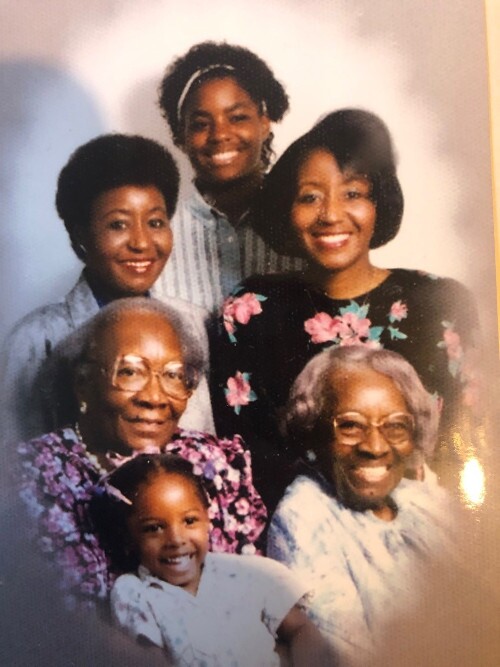
Saving a Precious Family Bible from Hurricane Katrina
In May 2005, I went home to New Orleans for my high school reunion. Before I came, I told my mother I wanted to see our family’s original Bible. My mother said she would try to find it. When I walked into the house, the family Bible was in a big box on the dining room table," said Bernice.
As is the custom in some families, their Bible was not only a book of scripture but also a place to record family history. "It had all the information I needed,” Bernice said.
Bernice’s mother gave her permission to mail the Bible to herself with the promise that she would copy it and return it.
In August of that year, Hurricane Katrina struck and destroyed everything.
“The house was gone. If I had not sent that Bible to myself, I would not have it. I have it to this day. My whole journey is about understanding the value of records,” Bernice said.
Through this journey to understand the value of records, Bernice also went to the courthouse where her grandmother was from. She found a genealogist there and was escorted to the vaults where she found some of her family’s marriage bonds from the mid-1800s.
“I was very lucky. My grandmother lived to be 105 years old. She passed away in 2000, which means my children knew their great-grandmother very well and she passed along stories,” Bernice said.
Working in Domestic and International Public Health
Despite her interest in records, Bernice did not start out with a career in genealogy. For 35 years, Bernice practiced public health. She received a bachelor’s from Grambling State University and a degree in Public Health from the University of Michigan. Her career began as a health education specialist for a neighborhood health center in Baltimore and later as an instructor at the School of Health Services at Johns Hopkins University.
Bennett worked in several other settings, including a well-known public hospital in Dallas, Texas, as the director of patient services. Later, because of her public hospital experience, she became a senior program officer for the American International Health Alliance. This job gave her the opportunity to create “Healthy Community” partnerships in Romania, Hungary, Slovakia, and Croatia as well as promote women’s health and primary care partnerships in Russia, Ukraine, the Republic of Georgia, and other countries of Eastern Europe, and the former Soviet Union.
With this program, Bennett and other members of the AIHA team interviewed citizens of Russia, Slovakia, and Ukraine about what they recognized as good in their communities. They also asked them to recall their experiences living in their countries under the arm of the former Soviet Union. Then the team gathered communities together to do joint analyses, enabling them to see their strengths and weaknesses. Finally, the AIHA team helped these communities form partnerships with organizations in the United States and the former Soviet Union to help make important changes to their towns.
“After 10 years [with the AIHA], I went back to the 'Mother Ship,' or organization that originally hired me, the National Association of Public Hospitals (now called America's Essential Hospitals). It was composed of hospitals located all over the United States. My role then was to work in quality control. I continued with that organization before I retired in 2009,” Bernice said.
Plunging into Genealogy Because of Love of Family
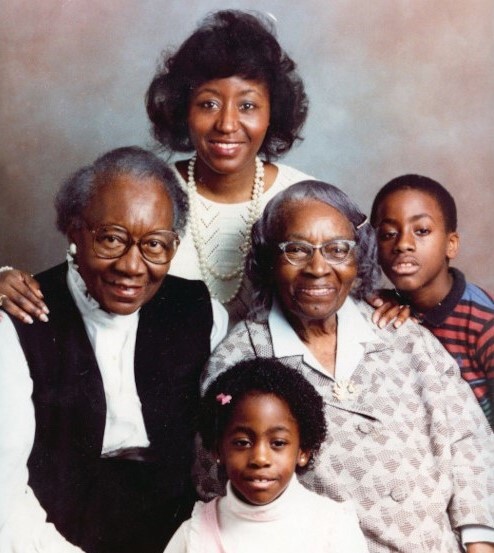
After retirement, the love of her family inspired Bernice to plunge further into genealogical research. Growing up in New Orleans, Bernice was surrounded by her maternal family.
“I consider myself very fortunate to have grown up with a mother, a father, a grandmother, a great-grandmother, great-aunts, and lots of cousins. All these people were around. If you understand anything about New Orleans, we have a culture that is so rich—doing things around food, doing things around celebration. These are the memories that I have from childhood,” Bernice said.
Bennett felt confident she knew the history of her maternal family line in Louisiana. It was different from her paternal line. Her father passed away in 1982, and she wanted to know more about his family. She knew they came from South Carolina and a few of her relatives’ names, but she did not know the details.
“My paternal grandmother passed away at an early age. We had a beautiful portrait of her, and I just knew I needed to find out more about her,” Bernice said.
Bennett discovered her paternal grandmother was from Ninety Six, South Carolina.
“I had no idea where it was,” Bennett laughed.
As part of her research, Bernice started with a map and found Ninety Six was located in Greenwood County. She went closer and found the old Edgefield District where the family lived. She reached out to the local genealogy society and asked if they had records for anyone named Kemp.
“I thought they wouldn’t, but to my surprise, they immediately responded, ‘black or white?’ I told them I would take both," Bernice said.
Finding and Connecting to Lost Family
Bennett found information on both sides of her father’s line. She connected to a second cousin who was also seeking ancestors through an African American research site called AfriGeneas. The website has a surname list that serves as a sort of directory of the past. People insert surnames and locations of interest, and others supply the information they have found.
Through that research, she discovered her grandmother had a brother, and she was able to find cousins she had not known existed.
“I had been interested in genealogy for a very long time. I really got serious because I wanted to find living relatives. I did connect. I connected with this relative, and I connected with the descendant of the enslaver of my ancestors. It was absolutely amazing,” Bernice said.
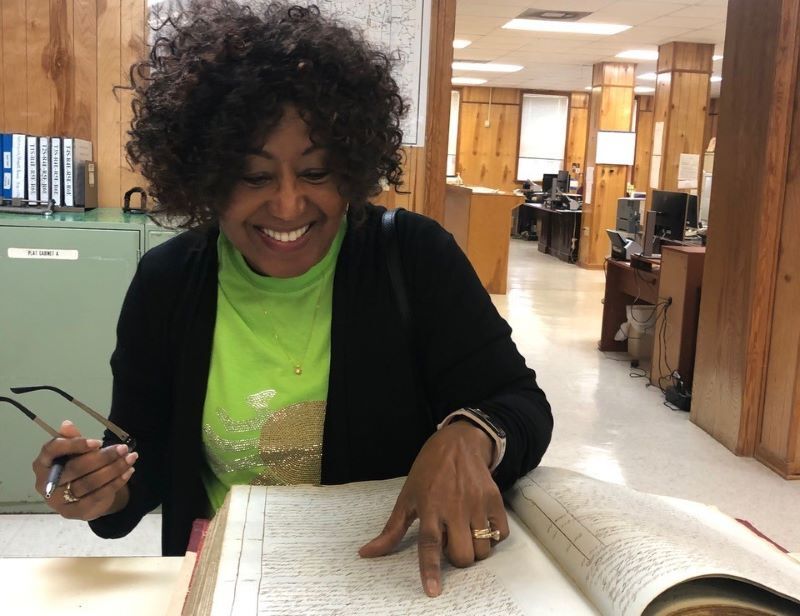
Becoming an Author
Bernice Bennett’s research on her paternal family line led to her authoring Our Ancestors, Our Stories in 2018, with 4 other authors. They call themselves “The Memory Keepers,” and each wrote a chapter. Bernice’s chapter was based on her search for the South Carolina Kemp family and tells the story of her discoveries and the process she went through to find them.
Since that time, Bernice has written 2 other books, Black Homesteaders of the South and Tracing Their Steps: A Memoir; My Journey to Find Granddaddy's Land in Livingston Parish, Louisiana.
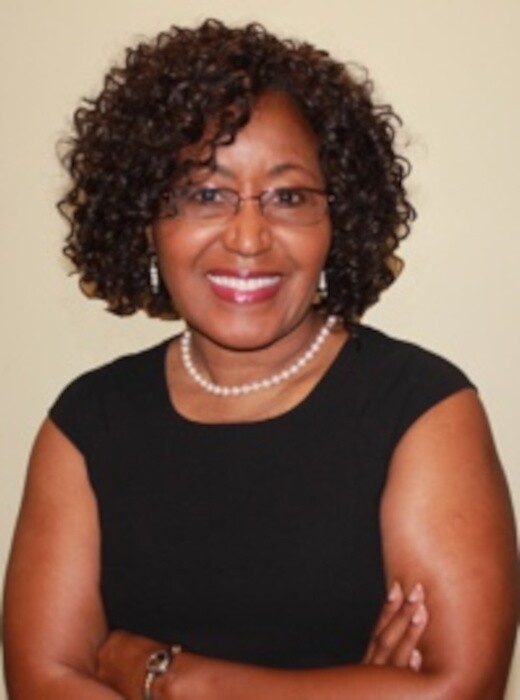
Becoming a United States National Archives Expert
While doing research, Bernice discovered her second great-grandfather, born in 1855, owned a "lot of land" in Maurepas, Louisiana. She wanted to find the land and verify the story, so she went to the local courthouse in the community where her grandmother lived. Eventually, her search led her to the National Archives (NARA) in Washington D.C. where she found the documentation of his land.
Bernice Bennett now lives in Maryland near Washington D.C. and has become an expert in finding records at NARA. She does research for herself and for others.
Hosting a Blog Talk Radio Show
As Bernice combed through NARA records, she saw the stories they told. It inspired her Blog Talk Radio show, Research at the National Archives and Beyond, which ran for 10 years. She invited historians, people who had done their own research, and others to share their findings. After recording 422 episodes over 10 years, Bennett finished her last episode. Before ending the show, she encouraged 2 people to guest host, and now they are carrying on her legacy.
Working with a Genealogical Institution for African Americans
Bernice’s previous experience in organizing and teaching no doubt was useful in her work with the Midwest African American Genealogy Institute in St. Louis. It was established in 2013 to provide learning resources and experiences to further skills in African American genealogy research and continues to grow. Now MAAGI hosts a yearly African-American-focused conference offering a total of 48 classes over 3 days with evening lectures and guided personal instruction.
Presenting Professionally at RootsTech and Other Events
As an ambassador for RootsTech, Bernice interviews genealogists and shares their stories and insights. RootsTech is the world's largest family history conference and welcomes millions of people worldwide to celebrate online or in person. With thousands of classes, inspiring speakers, meaningful activities, and joyful connections, RootsTech brings the human family together like no other event. Some of the classes Bernice has taught at RootsTech are USCT Pension Files: A Rich Resource for African American Genealogy and Examining Runaway Slave Ads.
Bernice is also a sought-after presenter for the National Genealogy Society, Afro-American Historical and Genealogical Society, Southern California Genealogical Society Jamboree, and more.
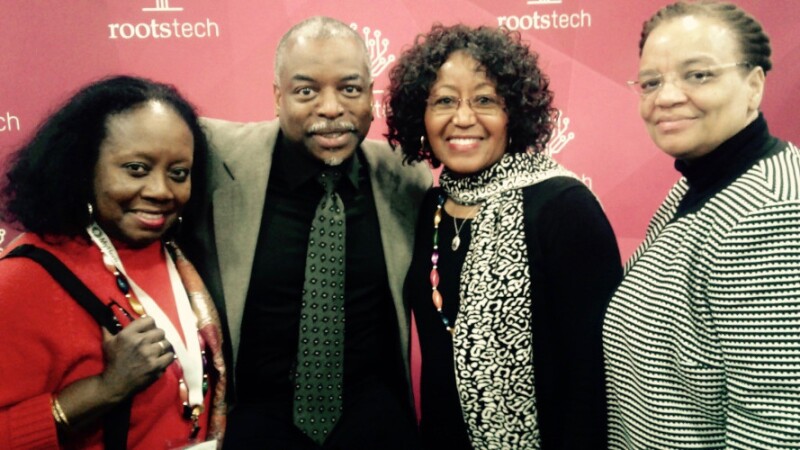
Finding African American Homesteaders with the National Park Service
Bernice also works in partnership with the National Park Service (NPS) as a volunteer. The NPS has a Homestead National Historical Park in Nebraska dedicated to sharing the history of homesteads around the country. Their site includes a page called “Black Homesteaders.” Bernice willingly helped gather records, including the case files, and created a template so people could use those documents to author the stories of African American homesteaders.
Becoming an Award Winning Genealogist
Formal recognition and awards for Bernice Bennett’s work in genealogy attest to her expertise. She is extremely good at what she does. She received the first Ida B. Wells Service Award from the Sons and Daughters of the U.S. Middle Passages for her dedication to broadcasting stories about enslaved and indentured ancestors of African descent. She also received the Elizabeth Clark-Lewis Afro-American Historical and Genealogical Society (AAHGS) Genealogy Award in 2019 for original research in support of African American Genealogy.
But Bernice is not ready to be satisfied with past successes and do nothing to achieve further success. The future will find Bernice giving back to the people and the communities around her as she uses her passion for telling historical stories of African Americans, finding family, and helping others find theirs.

